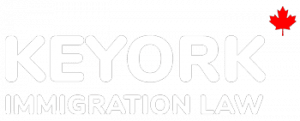
Refugee
If you are in Canada and you meet the definition of Convention Refugee, you may be able to file a refugee claim. A board member from the Refugee Protection Division (RPD) at the Immigration and Refugee Board (IRB) will make the ultimate decision with respect to your claim during your refugee hearing. To demonstrate your claim, you will need to submit supporting documentation prior to your hearing as well as testify as a refugee claimant – the Board Member will ask you a series of questions.
Watch our Youtube video below to know which language is best to speak at your refugee hearing.
Learn about the new Canadian Refugee Protection Portal by watching our Youtube video below.
What happens during a refugee hearing at the Refugee Protection Division (RPD)?
Here are our useful blogs about refugee in Canada
Healthcare for Refugee Claimants
Healthcare for Refugee Claimants Will I have access to free healthcare while my refugee claim is being processed? Yes. Refugee claimants in Canada are eligible for limited free healthcare, education and other social benefits. Health coverage is provided under the […]
What can I expect to happen at a refugee hearing?
I submitted my refugee claim in Canada and I received a Notice to Appear for my refugee hearing. What will happen during my hearing? How can I prepare myself for the hearing? The refugee hearing is organized in order to […]
How does a Refugee Claim work in Canada?
A refugee claim may be submitted if you fear that you may be persecuted in your country of nationality or citizenship. You may also submit a claim if you feel that you may be tortured or are at risk of […]
What happens during a refugee hearing at the Refugee Protection Division?
1> Depending on a number of factors including your country of origin and whether you made your refugee claim at a port of entry or once you were already in Canada, your Refugee hearing would be scheduled within 30 to […]
If my refugee claim is denied in Canada, what are my options?
If your refugee claim is refused in Canada and you are not from a designated country of origin you will be able to appeal the decision at the Refugee Appeal Division. In some cases, the Board Member might say that […]
Refugee claim refusal: do I have to leave Canada?
I made a refugee claim and it was refused, do I have to leave Canada? Following recent changes in Canada’s Refugee application system, applicants from a list of countries known “Designated Countries of Origin” (DCO) do not have a right […]
What is the Safe-Third Country Agreement?
The Safe-Third Country Agreement is an agreement between Canada and the United States relating to Refugee Claims. Persons who are claiming refugee status must do so at the first country that they arrive in (either Canada or the United States). […]
Will Canada give financial assistance to refugees?
The Government of Canada provides some assistance to refugees through the Resettlement Assistance Program to help refugees with special needs. The Program is made available to refugees who made a refugee claim from abroad and have special needs are have […]
Was your refugee claim denied as well as my PRRA?
I submitted an H&C application 2 years ago but now CBSA asked me to buy plane tickets and leave Canada. My children are in school. What can I do? You submit a Request for Deferral or have a lawyer submit […]
The First Year and Beyond – A Syrian refugee family story
Why did this group of Canadian citizens decide to step up and raise the necessary funds to support bringing a Syrian refugee family to Canada? The story all started back in September 2015, after reading the front page of the […]


